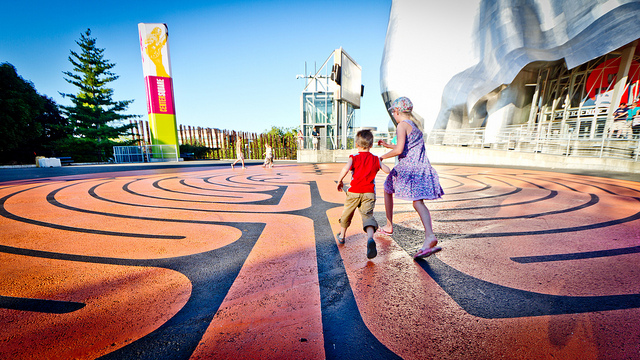Are creative kids born that way? Or do environment, family, education, and culture determine how creative they are? Can creativity be learned and unlearned? Many social critics are concerned that the growing reliance of 21st century kids upon technology for everything from education to recreation will hamper imagination and ingenuity.
My experience as a child psychologist gives me a different perspective. I have seen kids with more varied interests in the past decade than at any other time in the past. While there are kids who may spend a disproportionate amount of their time engaged in screen-based activities, I encounter more who are captivated by activities like cooking, computer programming, video production, entrepreneurship, clothing design, and other creative pursuits.
I actually find myself wondering whether kids growing up in the digital age are even more creative than kids from previous generations. It’s important to think about why this is and what parents can do (or not do) to encourage this creativity and playfulness. Adam Grant addresses these and other issues in his enlightening New York Times article, “How to Raise a Creative Child. Step One: Back Off.” Grant suggests that the most creative students are not necessarily child prodigies or products of helicopter parenting. Instead, he notes that creativity is generally enhanced by a playful approach that makes learning fun and enables kids to find their own values and interests.
Grant argues that creative children are more likely to engage in a variety of play activities rather than focusing their efforts on just one hobby. “Nobel prize winners,” he points out, compared with other experts, “are 22 times more likely to perform as actors, dancers or musicians, 12 times more likely to write poetry, plays, or novels; 7 times more likely to dabble in arts and crafts; and twice as likely to play an instrument or compose music.”
From this perspective, play can be understood as more important than practice and repetition for innovation and problem solving. There is a commonly accepted rule derived from the research of psychologist Anders Ericsson, PhD — recently popularized by Malcolm Gladwell — that spending 10,000 hours on a particular subject makes one an expert. Ericsson’s original theory was that “deliberate practice” was more important than innate talent in “the acquisition of expert performance.” But there is some question as to whether expertise alone leads to innovation, advancement, creativity. In his New York Times article, Grant argues that creativity does not come from repeated practice but from opportunities to try out new things and to be engaged in a variety of activities. “Practice makes perfect,” he writes, “but it doesn’t make new.”
Parenting styles play a role in enhancing creativity as well. Grant describes a 1989 study (notably before the digital revolution) that found the most creative kids came from families that held up one basic rule rather than the average of six rules found in less creative families. Grant proposes that having a limited number of rules encourages kids to think on their own. These findings can also be interpreted to suggest that kids who are are given the opportunity to develop executive functioning, social emotional learning (SEL), and problem solving skills are more likely to be creative. Let that be a warning to parents who won’t let their kids go outside or try something new out of fear for their safety — you may actually be inhibiting your kids’ natural creativity.
Creativity requires risk, plain and simple, and it should be fun, energizing, and voluntary. I would also argue that playfulness is crucial. When a child (or an adult) is enjoying what they are doing or at least doesn’t take it too seriously, they are more likely to be enthusiastic, sustain attention, and overcome frustration. Kids who are encouraged to engage in a variety of play activities are likely to display more creative expression.
With all that being said, in today’s highly competitive, digital world, there are incredible pressures on kids to succeed and many powerful distractions that can take them away from the stressors of their daily life. As kids enter their teens, some strive to become “experts,” focusing on sports, musical talents, or tech skills, while others turn to drugs or too much screen time. Some kids are driven to create a resume that will get them into the best college, leaving them little time for play. Other kids, less guided by their parents, may focus too much of their attention on a screen and ignore the variety of play activities that leads to creativity and better psychological adjustment and contentment. Though Grant’s article is informative and enlightening, rather than simply suggesting that parents “back off,” perhaps we ought to be telling them to exert some gentle guidance and modeling in order to help kids find a healthy balance of play and discipline in their life. Can creativity be learned? It doesn’t need to be learned if it’s nurtured.
Our video game Playbooks and app reviews give parents and educators practical advice for talking about and playing video games with kids and helping them translate the skills they use in games to their real lives. Read more about our philosophy on play, why we think play is so important, and whether kids are getting enough these days.
Featured image: Flickr user N i c o l a




